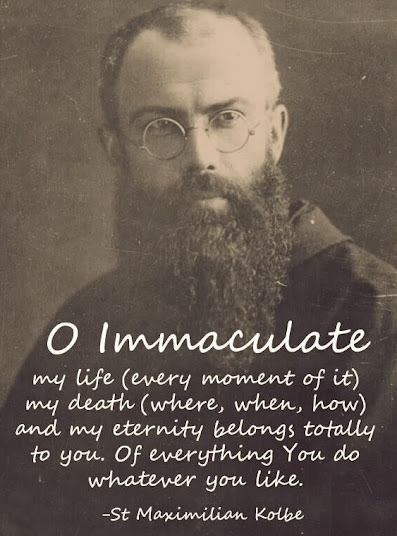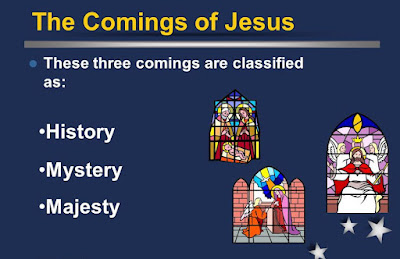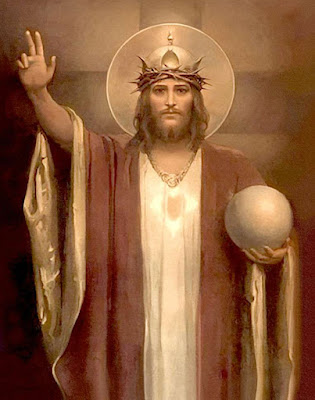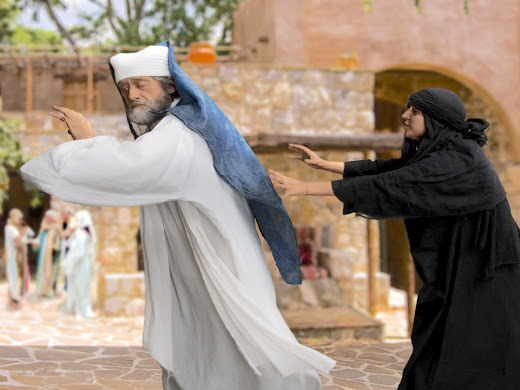Catholic Homily for the Octave Day of Christmas, Solemnity of Mary Mother of God, Jan 1, 2023. The Gospel of Luke 2:16-21. Theme: Jesus-Emmanuel, Mary's Christmas Gift to us
January 1 is a spiritually rich multi-themed day in the Catholic Church. First, it is the Solemnity of Mary, Mother of God. We celebrate the unique vocation of the Blessed Virgin Mary, called to give flesh and blood to the Incarnate Son of God. Her virginal motherhood proclaims the mystery of who Jesus is: God comes as one of us, fully human yet also fully divine. This is so important that our celebration is called a "Solemnity" and is a Holy Day of Obligation for Catholics.
January 1 is also the Octave Day of Christmas. Many Jewish celebrations were highlighted for 8 days to show their importance. One of these was the circumcision and name-giving of boys on the 8th day after their birth. Through this ritual they entered into Israel’s Covenant with God. It would be rather comparable to Baptism for us Christans. And so in today’s liturgy we celebrate the 8th or Octave Day of the Lord’s Nativity as we commemorate the circumcision and naming of Jesus.
Choosing a name for a child is a big part of getting ready for its birth, but God himself selected Jesus’ name and revealed it to Mary and Joseph in the beginning of her pregnancy. An angel said to both of them at different times, “His name will be JESUS.” Actually, he would have been called Yeshua in their native language and that's how Mary & Joseph would have addressed him. We would call him Joshua in modern English, however, Christians long ago chose to use the Latin form of his name in Greek (Ieosus) in order to preserve and proclaim his utter uniqueness. But in any case and in every language the name means “God saves” and that was and still is that Holy Child's mission on planet Earth as the angels first said to the shepherds: “the Savior has been born for you.”
However, the Scriptures also give us what we might call Jesus' nickname. As we all know, a nickname typically expresses some characteristic that really stands out in a person and Jesus' nickname was EMMANUEL which means, "God is with us". That is what makes him most unique, and when we put the two names together we get the full picture of who he is and why he came among us. When we put those two names together we arrive at the true sacred mystery of Christmas: the birth of Jesus-Emmanuel or in English, of the God who saves, the God who has come to be with us as one of us.
It is precisely through this union of the human and the divine in Jesus that God embraces and kisses our human nature, so to speak, and transforms us from the inside out. By the Savior being both human and divine he elevates our dignity and status from being simply creatures of God to that of adoption as the very children of God and heirs of Heaven. Through his total sharing of our humanity with us he injects into it the supernatural power of grace which enables us to rise above our selfishness and sinfulness. This power of grace resides in us through the indwelling of the Spirit and is increased within us by prayer, acts of mercy, and reception of the sacraments. And it is Mary’s motherhood that has made all of this possible, which is why it is so fitting that we celebrate both of these mysteries on the same day.
But we need to remember that transformation is a partnership that doesn’t happen automatically. Jesus never violates our freedom by forcing himself upon us because the decision to reach out to him as Savior and begin being transformed rests upon our free choice. And again, Mary as the Blessed Mother comes into the picture for us, showing us how to use our freedom as she did, surrendering herself to God so that he could bring about her unique intimate relationship with Jesus her Son.
In today’s Gospel Mary teaches us to ponder who Jesus is and reflect on what he wants to be for us. Pope Francis repeats over and over again that it is extremely necessary for us to read and meditate on Jesus in the gospels and reflect on these things in our hearts like Mary . The gospels hand on to us what Jesus the Savior really did and said when he lived on earth, so there can be no such thing as truly knowing and becoming familiar with him without turning to these Scriptures.
Today’s Gospel also shows us that Mary was open and welcoming to the shepherds, thus allowing them to personally encounter Jesus. The Blessed Mother prays for us and wants us to draw spiritually and personally close to her Son as well. We can do this by spending time with Jesus in the interpersonal conversation that we call prayer. Prayer is simply speaking with him heart to heart about our day, our fears, our hopes, our dreams.
Finally, just as it was only through Mary that the Savior became flesh in Bethlehem, so it is only through the Mass that He becomes flesh for us today. He comes as heavenly food for our spiritual hunger and makes his dwelling within us through the Holy Communion. No other spiritual exercise or devotion can take the place of our personal attendance at Mass because it is at the Eucharist that we can most wonderfully receive and enjoy Mary’s Christmas Gift to us, the gift of her Son Jesus the Savior, who through this blessed sacrament forever remains Emmanuel, God-with-us.













